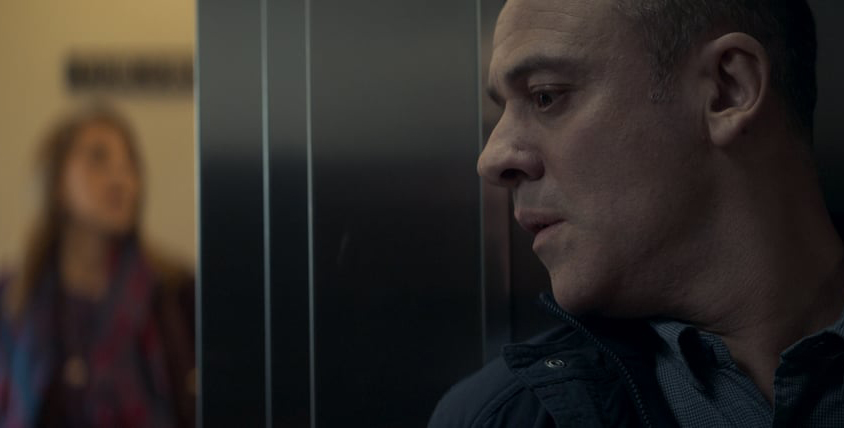Amidst the tough times, one good thing that’s making staying-at-home better is Netflix, undoubtedly. A week after the dropping of the terrific Spanish-language social horror, “The Platform,” the studio dropped yet another, equally intriguing, Spanish-language thriller, “The Occupant” (Spanish: “Hogar,” original title).
Written & directed by Àlex Pastor and David Pastor, “The Occupant” is a profoundly absorbing drama, in which there’s more to what’s on the surface. We have all watched glossy branding advertisements that assure a great life should the viewer purchase their product. Ranging from home appliances to automotive, every TV spot comes with a promise to enhance our lives. When a marketing executive, the brain behind many such alluring campaigns finds himself at the adverse end of the spectrum his advertisements sworn, his failure is more than simply a career jolt.
While Javier Muñoz (Javier Gutiérrez) established a triumphant career in advertising by driving his marketing campaigns based on viewers’ desire for a better life, his world collapses when he is out of work. ‘The life you deserve’ appears bold and clear during the film’s opening moments, cementing it as the film’s theme. Javier, in his terms, strongly opines he deserves the best life, but the world is not certainly aligned with his dreams and desires.
As a consequence of his financial crunch, Javier, accompanied by his wife Marga (Ruth Díaz) and school-going son Dani (Christian Muñoz) is forced to vacate his luxurious apartment and relocate to an affordable place. However, Javier is mentally stuck at the prime of his life. There’s no way he can move-on. Gradually, the apartment he vacated becomes a symbol of desire in driving the narrative. Even after another family moves into the apartment, Javier sneaks in day-after-day, to feel what it was like to be successful. The newly-moved family comprises of Tomas (Mario Cases), his wife, Lara (Bruna Cusí), and their daughter. Javier wants to capture not just the physical space of the house, but the lives of its occupants. From his perspective, the new occupants mirror his younger and successful self. His following actions to step into Tomas’s shoes—literally and figuratively—dwell the movie into a captivating psychological thriller zone that simultaneously adds a pinch of social commentary with evidential symbolism.

When Javier goes for a run during his tenure at the luxurious apartment, the road is plain. Contrarily, after moving to an economically backward neighborhood, he has to climb the inclined road that resembles a hill. The road denotes not just the regional differences, but also his current struggles in life as opposed to when he lived in the apartment. Even Javier’s costumes reflect his personality. He is in white as we are introduced to him. After moving out of the apartment, his clothes gradually become grey and black and that persists throughout the film.
In a great scene right before Javier and family move out, Javier takes his domestic help Araceli on a car journey to drop her before informing her he has to let her go. In short, she is being fired. The scene is brilliantly staged on a rainy night with the car wiper’s periodic sound resembling the man’s heartbeat as he breaks the bad news. The rain could a representation or Arceli’s subsequent emotional breakdown. It is to be noted that we neither see rain ever again in the film, nor do we see such vehement crying. As an unemployed man, this is what he might have gone through. The difference, he must have been in Arceli’s position as his organization let him go.
Invigorated by Javier Gutiérrez’s towering performance, the title ‘Portrait of a Job-desperate Maniac,’ would have been a befitting choice to the story! Gutiérrez’s embodiment of the man on the surface and the maniac within is dreadfully magnificent. He perfectly portrays the helpfulness, hope, and desires with a minimal exhibition of expressions, making it a terrific non-physical performance. Subdued by Gutiérrez is Mario Casas’s Tomas, who suffuses the character with humanistic emotions like guilt, fear, and helplessness, all within the one-line description of his character.
The Pastor brothers craft a slow-burning thriller, which would have could have come across as an exploitive stalker-thriller, had any of one factor—the music, performances, and cinematography—been a notch higher. But, everything is in the right place, except Javier! Thanks to his desperation, with “The Occupant,” we have a thriller to dig.


